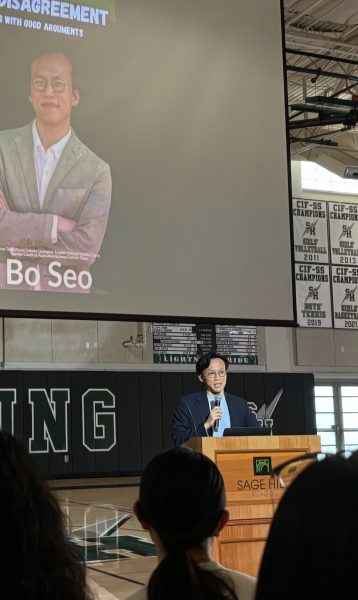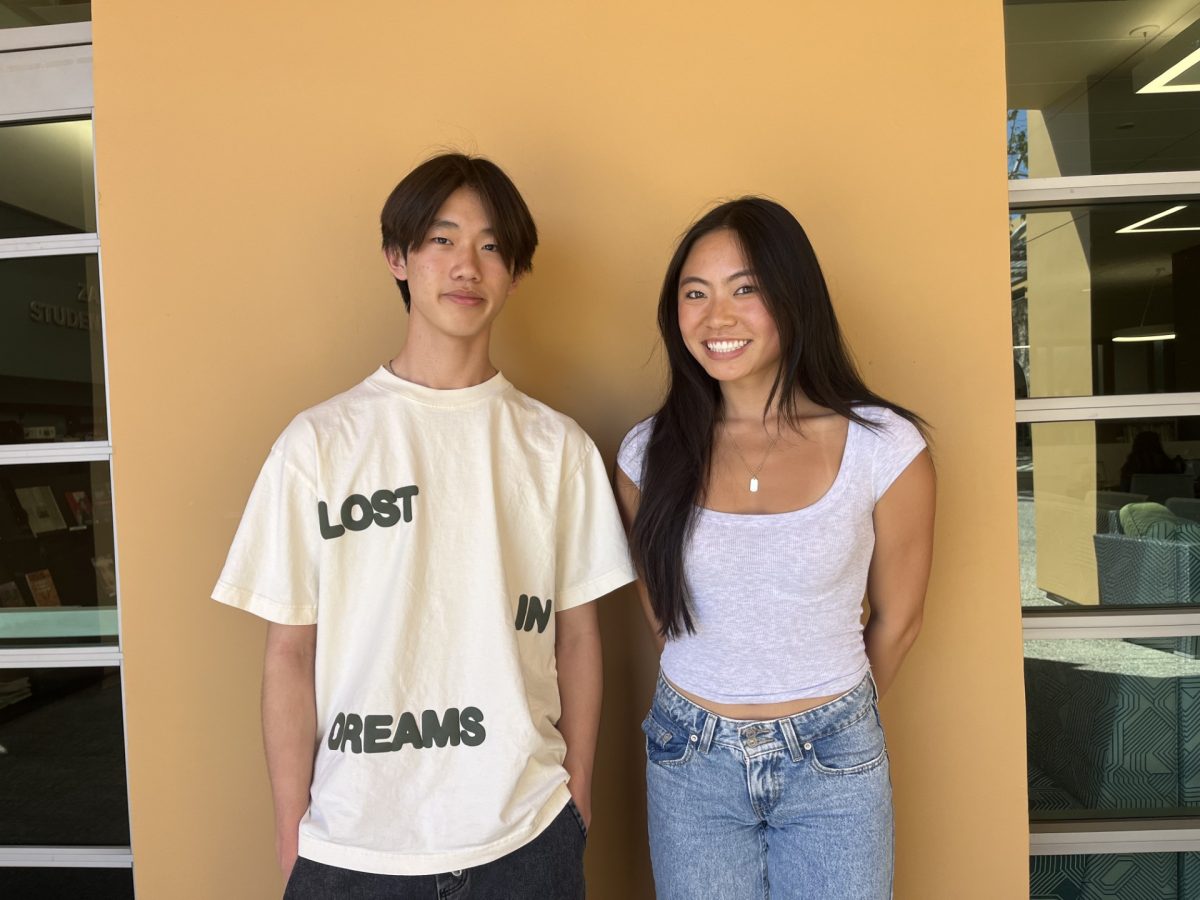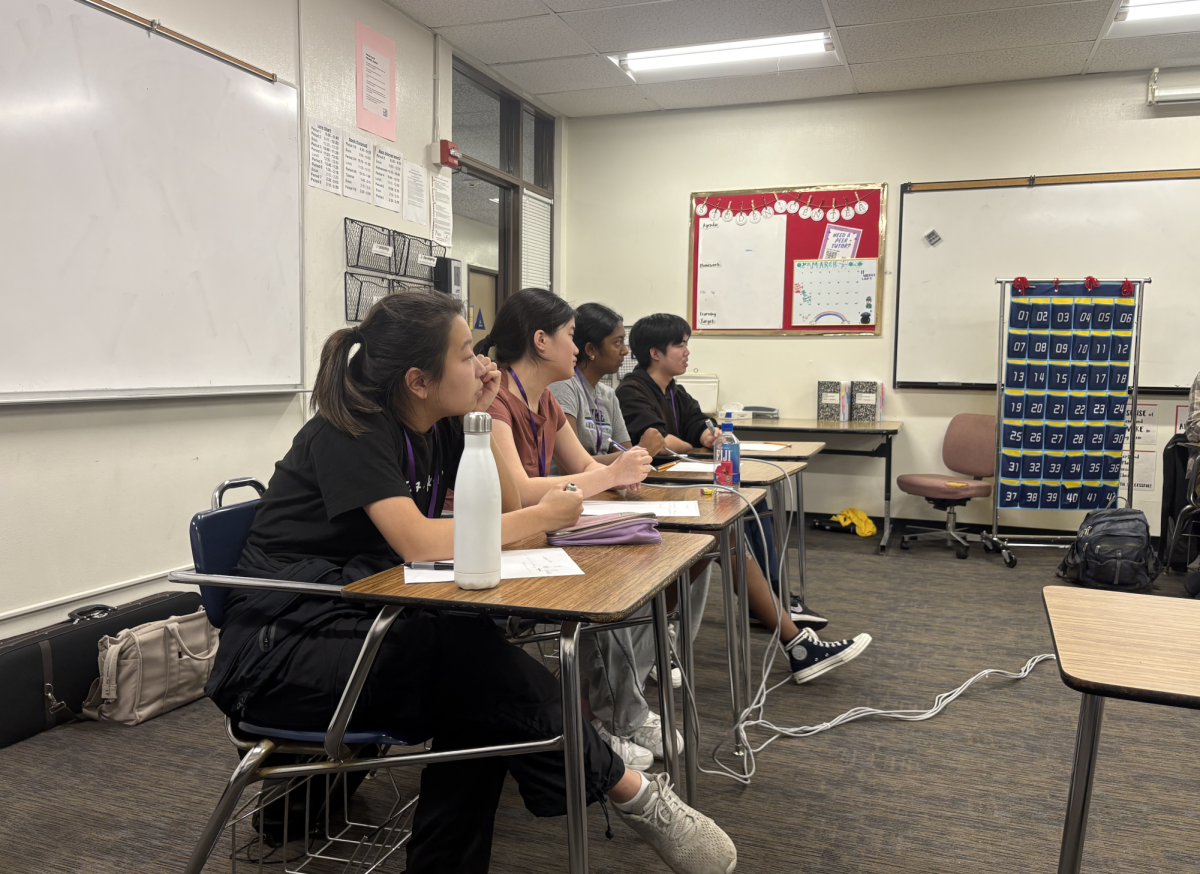
Bo Seo, a former coach for Australia’s national debate team and the Harvard College Debating Union, introduced the craft of debate to navigate the differences with others at the Sage Center Speaker Series on Sept. 25.
On Sage Center Orientation Day, Seo stood in front of students and employees gathered in the Peter V. Ueberroth Gymnasium. Later that evening, he took the stage in the Kazu Fukuda Black Box Theatre to speak with Sage Hill family members and some prospective students.
At eight years old, Seo moved from South Korea to Australia without speaking English. Seo found conversation extremely hard, especially sometimes heated disagreements. As one of the few Asians in his new community, he believed that the welcome was conditional on not sticking out so he adopted a very agreeable image in order to fit in with his new community.
Seo was first introduced to debate in the fifth grade. His teacher made a promise that in debate, everybody would get a chance to be heard without any interruptions from others. This opportunity of attention was irresistible to Seo. From then on, he began to participate and switched his focus to debate.
Before beginning his lecture, Seo stated the dictionary definition of debate, “Debate is a formal disagreement on an assigned topic before an impartial adjudicator.” He also invited students to turn to a person sitting next to them and share about a time when the disagreed with someone.
Seo’s first lesson for debate was “Naming the Disagreement,” There are areas of disagreements: Factual, Opinion, and Action.
Seo presented a sentence for a type of disagreement to the audience, “That parents should send their children to the local public school.”
The audience chose a word that they felt was most important and at the heart of the disagreement. 80 percent said the word “should” was most important, which was very similar to around 60-70 percent of the student’s answers. Their answer for choosing this word was because it offered a sense of choice, which Seo agreed on. Many others also chose “parents” and “children” respectively. Seo commented that these two words seemed “to be at war with each other.” A final word was “local” because it represented proximity, the quality of the school, and matters related to time. Seo revealed to the audience that this argument has many potential focal points and could be a mixture of opinion and action disagreement.
“In debate, disagreement starts with a level of agreement. Agreement on what is disagreed on,” Seo said.
Lesson 2 was “Making an Argument.” There are two basics to an argument, Seo said. It should hold facts and statistics that could support the argument, but also have an emphasis on why this argument should be made. Another part of this lesson are the 4 Ws: 1. What is the argument? 2. Why is it true? 3. When has it happened before? 4. Who cares? Why should it change the other person’s mind?
During the Q&A section, Seo reflected on how immigration has affected his performance in debate. When he first arrived in Australia, he assumed the role of a listener due to his barrier in communicating fluently in English. This quickly taught him to listen closely in debates.
Through understanding the statements made by others, Seo was able to catch the other teams’ mistakes.
Seo always prepares for potential arguments that the other side would make and tried finding points to counter their arguments.
Seo closed the lecture with an insight into his debater mindset, “Being able to separate myself from the disagreement gave room to reevaluation.”



